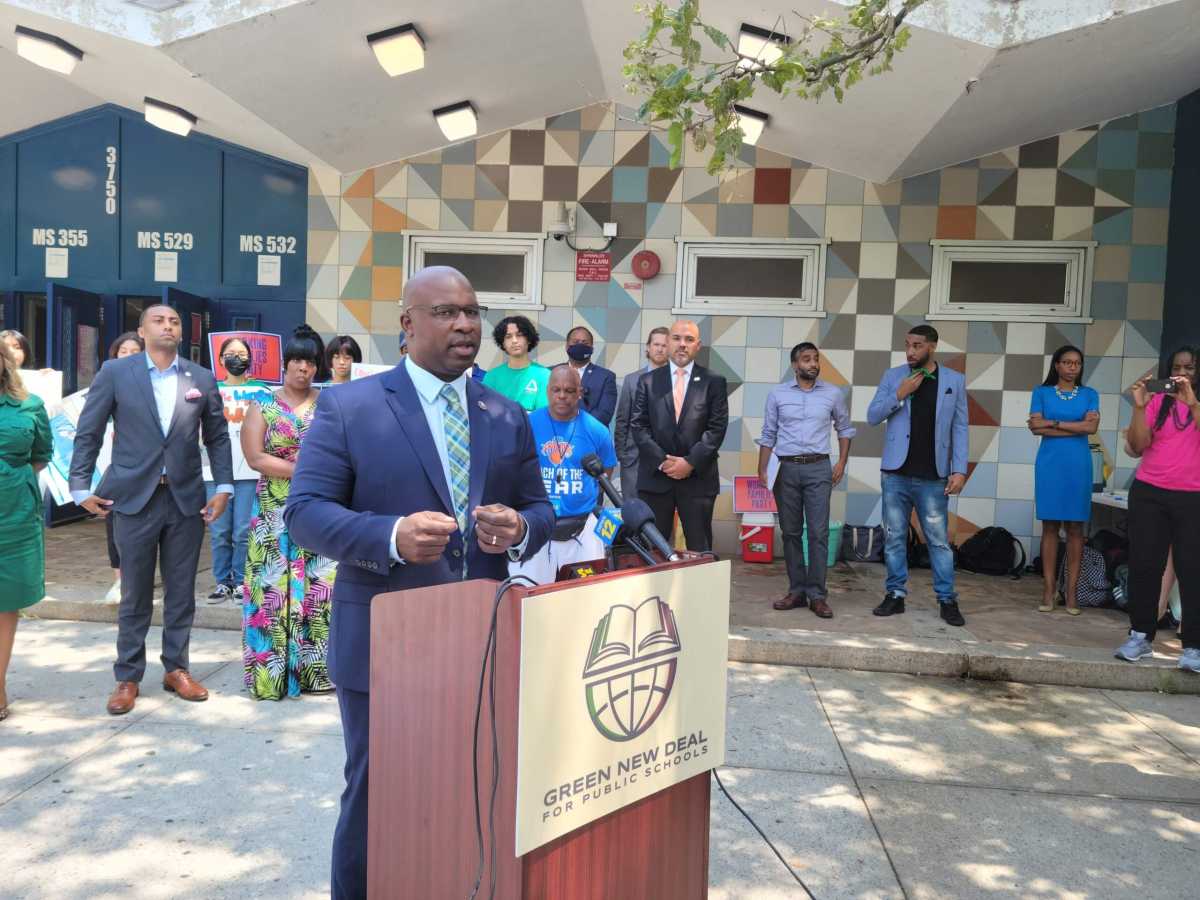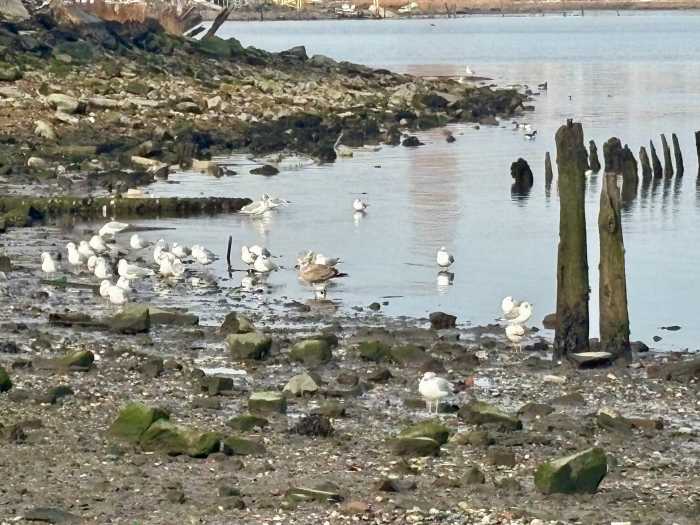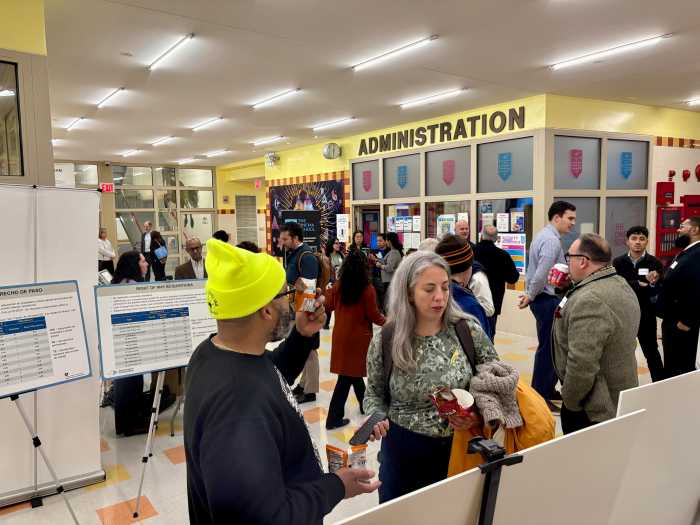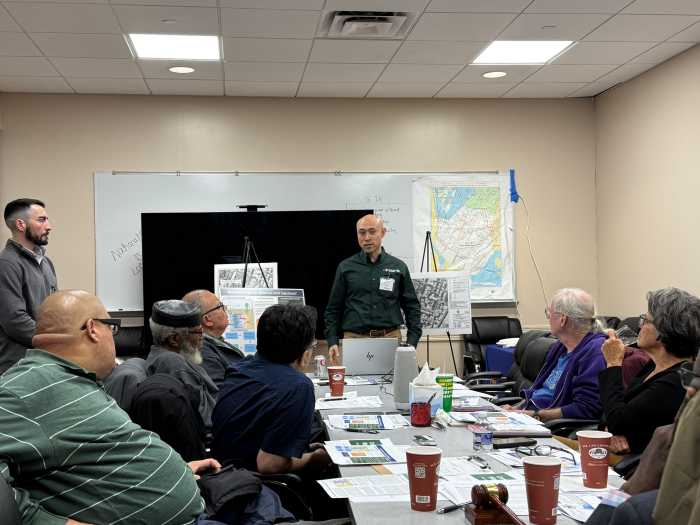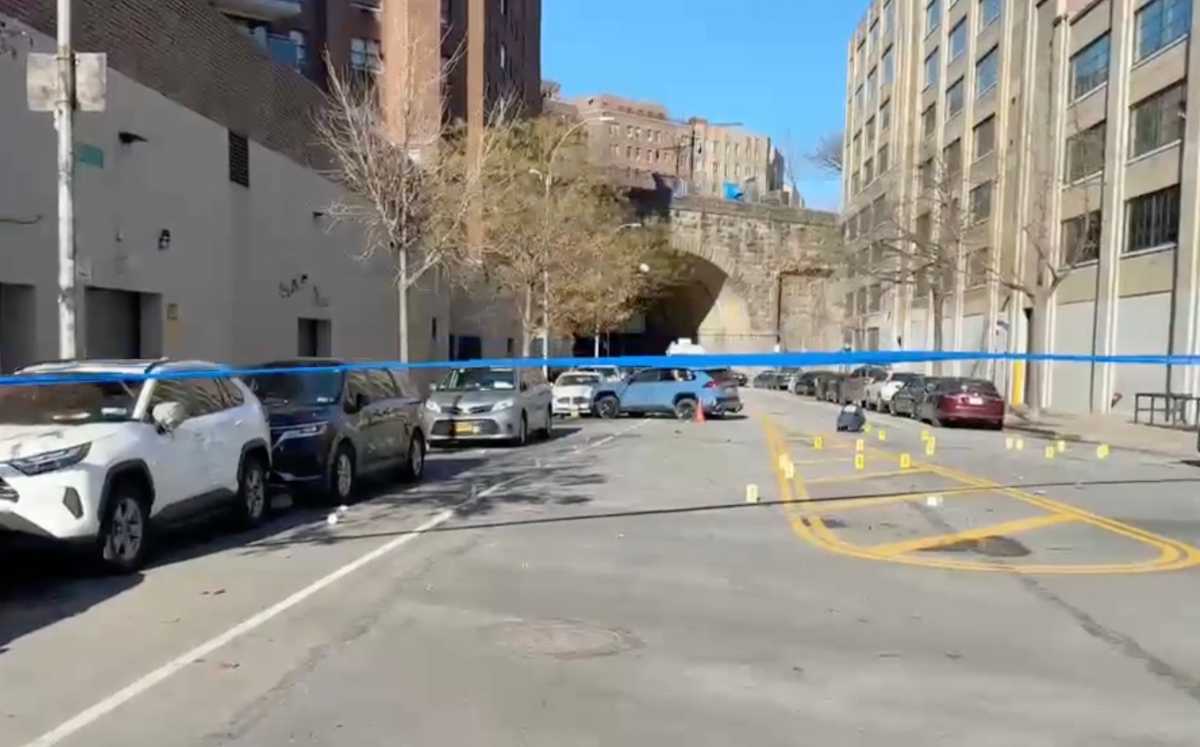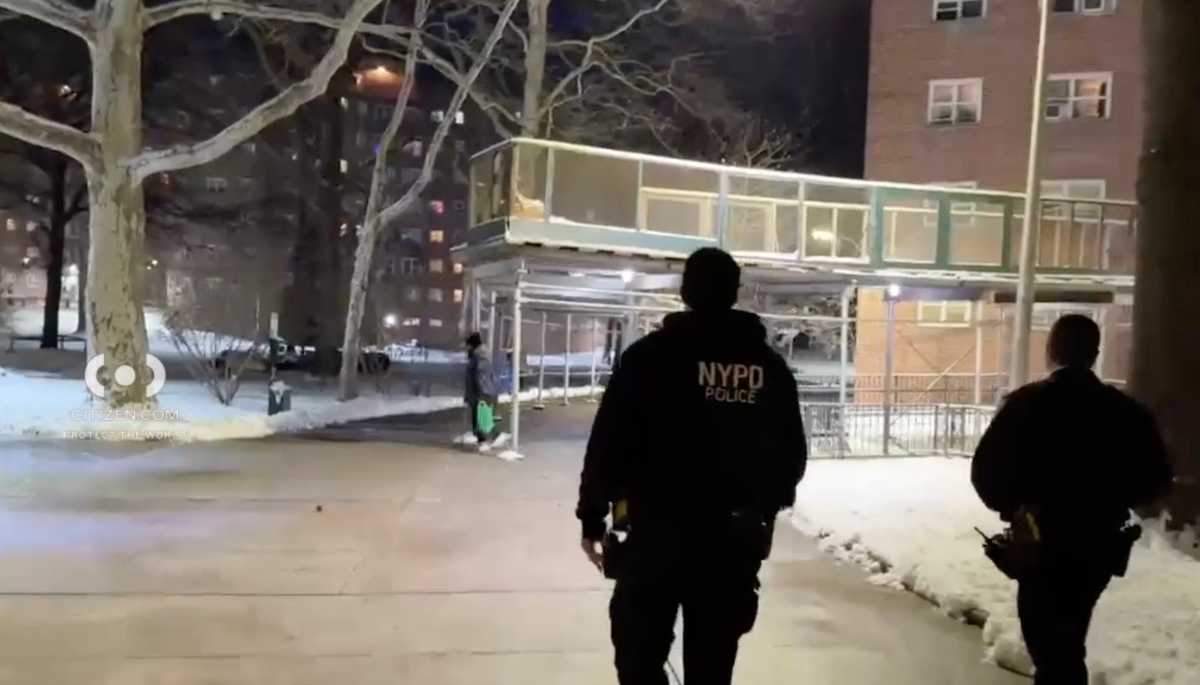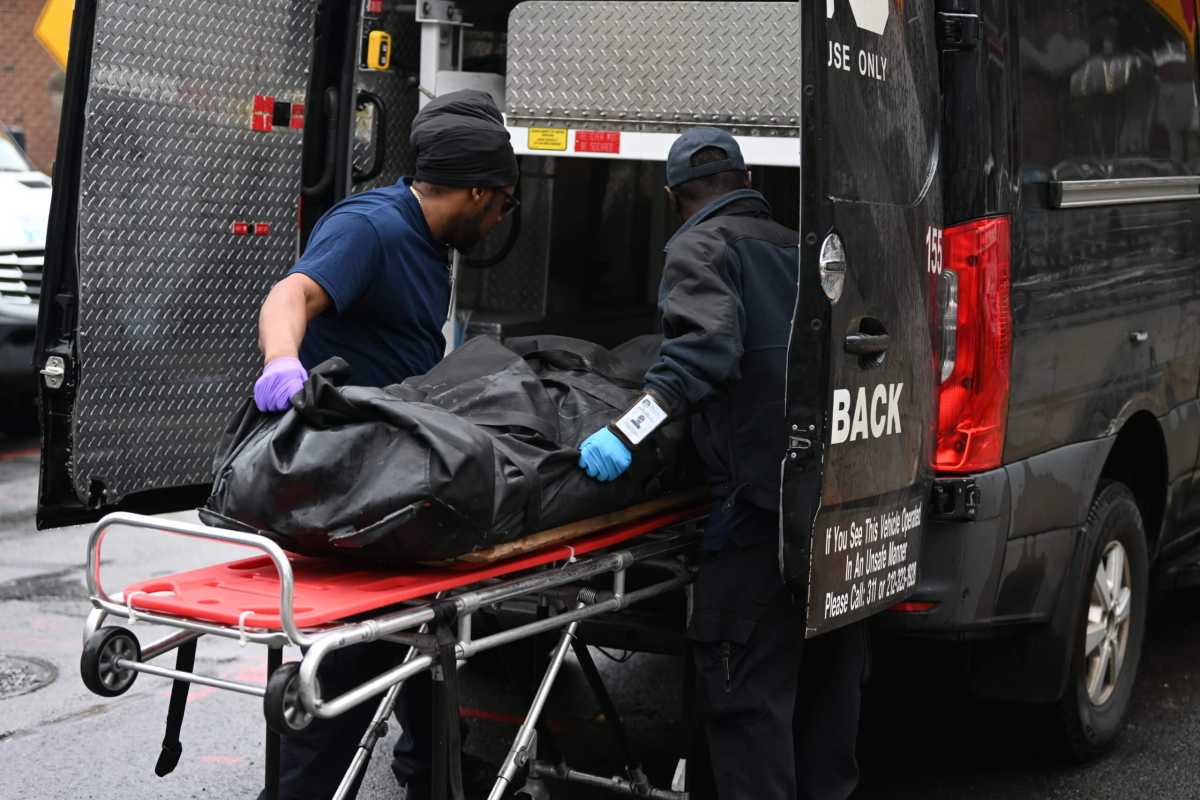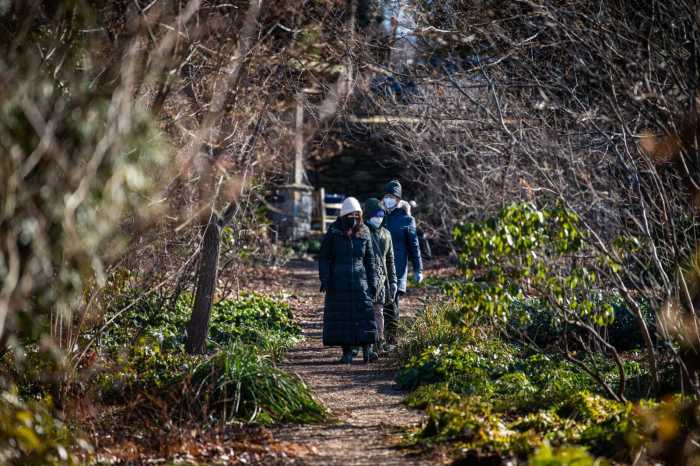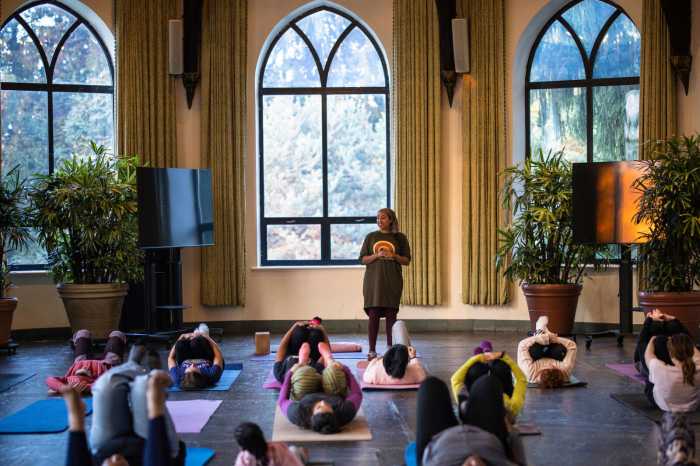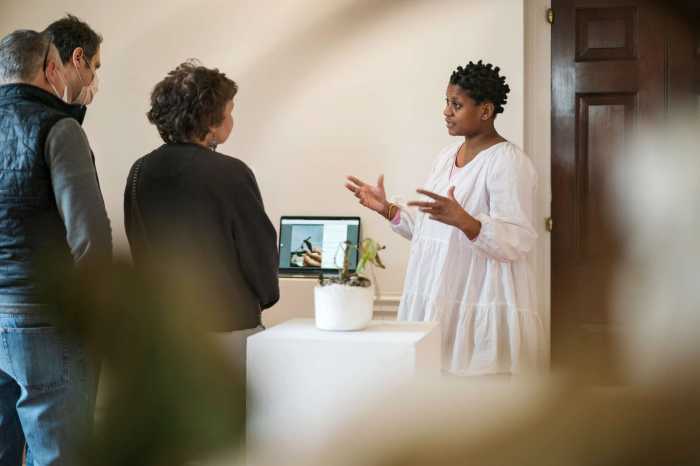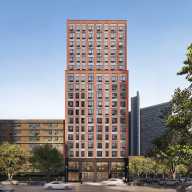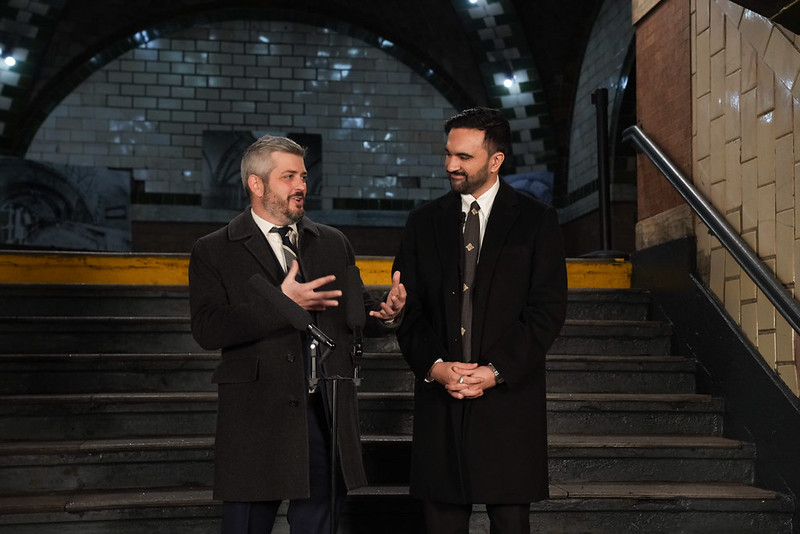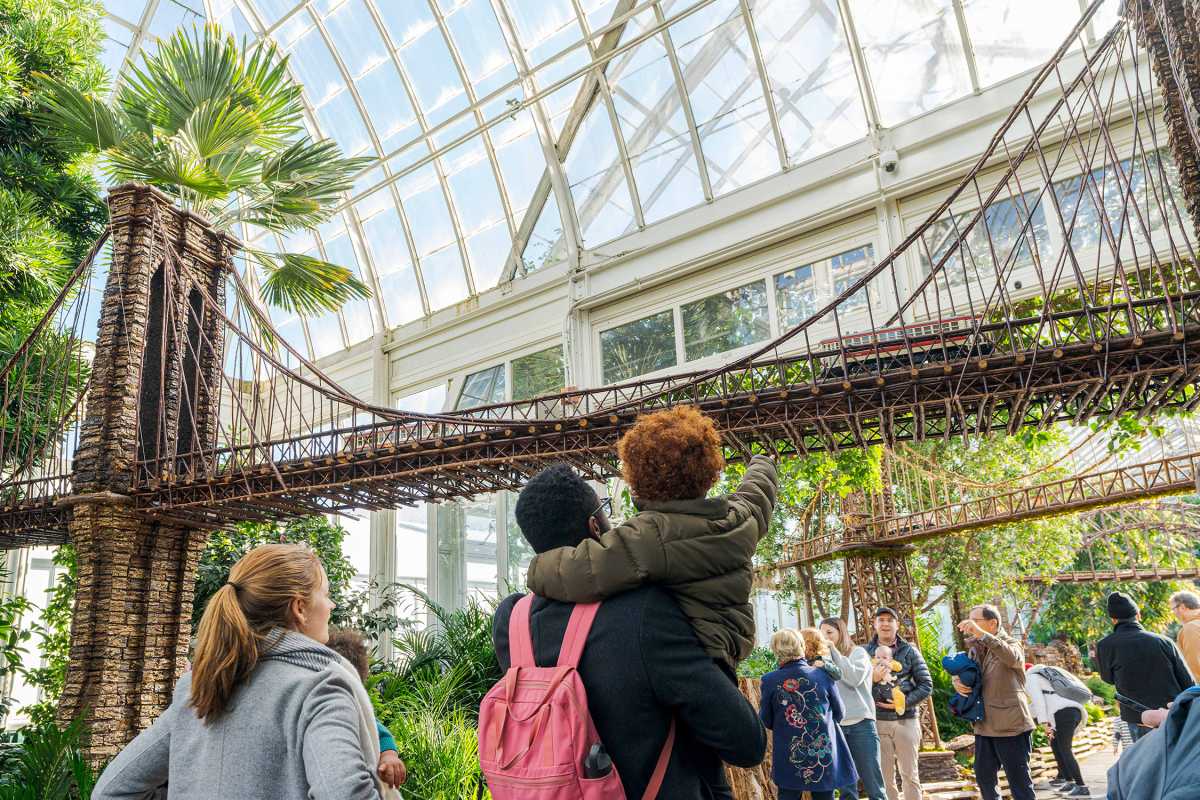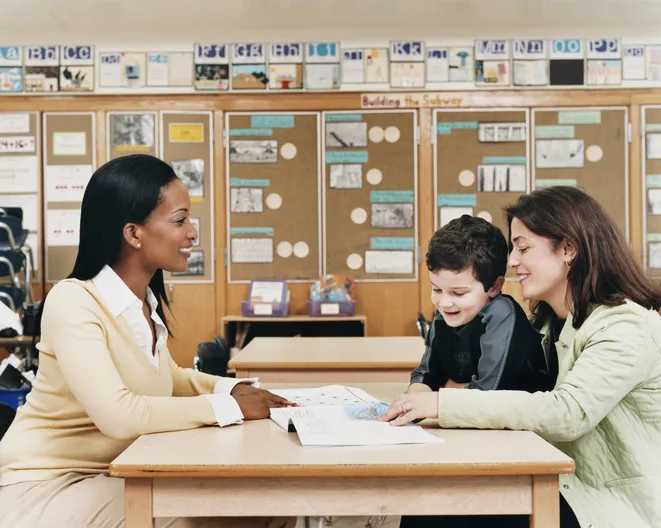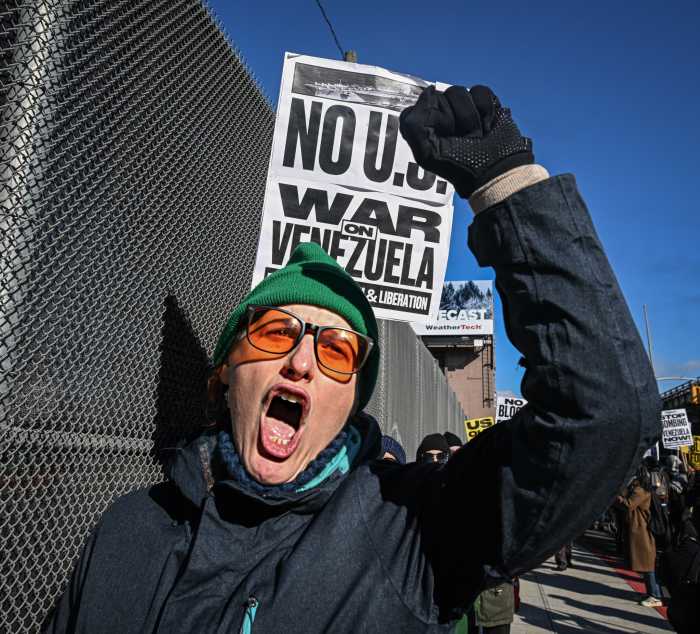U.S. Rep. Jamaal Bowman introduced a piece of legislation last week aimed at fighting the climate crisis by upgrading public school infrastructure and addressing historical inequities.
Bowman spoke outside of John Philip Sousa Junior High School in Baychester to rally support for the bill, dubbed the Green New Deal for Public Schools Act, which proposes investing $1.43 trillion in federal funds over the next 10 years to update school infrastructure to be able to deal with and help repair the climate crisis.
“We see rising sea levels and we see the flooding and damaging of property, ” said Bowman, who is a lifelong educator and former principal. “We see record number temperatures out west where you have places like Utah reaching peaks that they never seen before … climate change is real, it’s here and we need to do something about it.”
Schools, Bowman added, as the “heartbeat” of communities need to be at the center of climate change solutions and be epicenters for clean, green, renewable energy not just for themselves but for their larger surrounding communities. One of the primary goals of the ambitious investment is to allow schools to end their dependency on fossil fuels and transform them into renewable “oasis” of energy.
Here is a breakdown of the proposed investment:
- $446 billion in Climate Capital Facilities Grants and $40 billion for a Climate Change Resiliency Program
- Climate Capital Facilities Grants will fully fund healthy green retrofits for the highest-need third of schools, as measured by the CDC Social Vulnerability Index, and offer a mix of grant funding and no- or low-interest loans for the middle and top thirds. Grants will cover two-thirds and one-third of retrofit costs for these schools, respectively.
- $250 billion in Resource Block Grants
- Resource Block Grants will fund staffing increases, expanded social service programming, and curriculum development at high-need schools. The program will allow Local Educational Agencies across the country to hire and train hundreds of thousands of additional educators and support staff, including paraprofessionals, school psychologists and counselors, and learning specialists. The funds may also be used to design locally-rooted curricula; adopt trauma-informed, culturally responsive, and restorative justice practices, to move towards a “whole child” approach to public education; and partner with community organizations to offer a range of services to schools and surrounding neighborhoods, such as after-school programs.
- $100 million for an Educational Equity Planning Grants Pilot Program
- Educational Equity Planning Grants will encourage neighboring Local Education Agencies to form regional consortia, which will receive funding to conduct extensive community outreach, identify the historical and current sources of educational disparities within the region, and create and implement a Regional Education Equity Plan to address those disparities. This pilot program is modeled on the U.S. Department of Housing and Urban Development’s Sustainable Communities Regional Planning Grants, which are designed to encourage equitable, locally-driven economic development.
- $695 billion over 10 years for Title I and IDEA (Individuals with Disabilities Education Act) increases
- This bill proposes quadrupling Title I funding to reach $66 billion annually to support schools and districts with students living in poverty, as well as increasing funding for IDEA Part B to reach $33 billion annually to support students with disabilities.
Bowman was joined at the event by Mayor Bill de Blasio, Chancellor Meisha Ross-Porter, state Sen. Jamaal Bailey, Councilman Kevin Riley, educators and students.
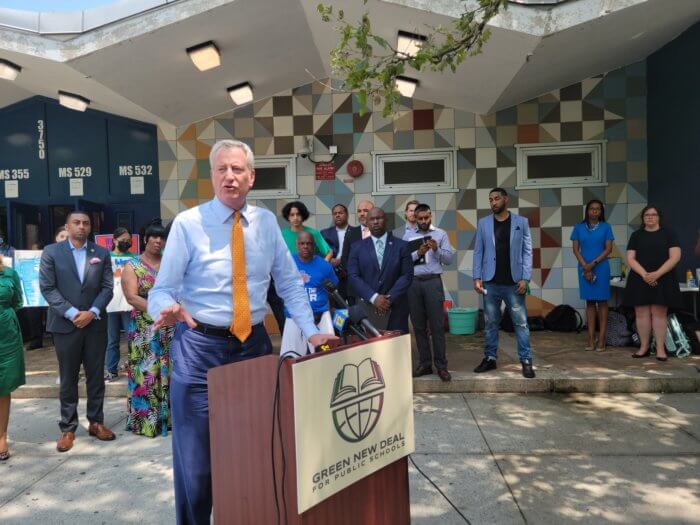
The mayor praised Bowman for the legislation and described the Green New Deal for public schools as a” transformative moment” in history as it will affect education for decades.
“Everybody, this is a very important day,” de Blasio said. “It really is, because if we’re going to get it right for our kids, we have to be bold, we have to do things very, very differently. And Congressman Jamaal Bowman is showing us the way, not just for New York, but for the whole nation. What you are seeing today, a Green New Deal for our public schools will transform the United States of America. It will transform this country.
“When we have schools that are ready to truly serve our children, our families, because they’re modern, because they’re clean and green, doors are going to open. When we have a curriculum that is of, and for, and by every child, doors open. When we provide the social services and the emotional support, doors open. So, this is what we’ve dreamed of, but now it’s actually here.”
Julian Ortiz, a high school student from Yonkers, which is part of Bowman’s district, thanked Bowman for introducing the legislation. Ortiz told the attendees that his school has poor water quality, mold, two guidance counselors for 300 kids in his grade, 30 kids per class and ultimately, a school that is not conducive for learning.
According to Ortiz, there’s no way for guidance counselors or teachers to build meaningful relationships with that many kids.
“How are we supposed to learn when there’s not clean water?” he said. “How are we supposed to focus when we can’t breathe air safely. I’m looking forward to this [the Green New Deal]. I would really love to see these improvements.”
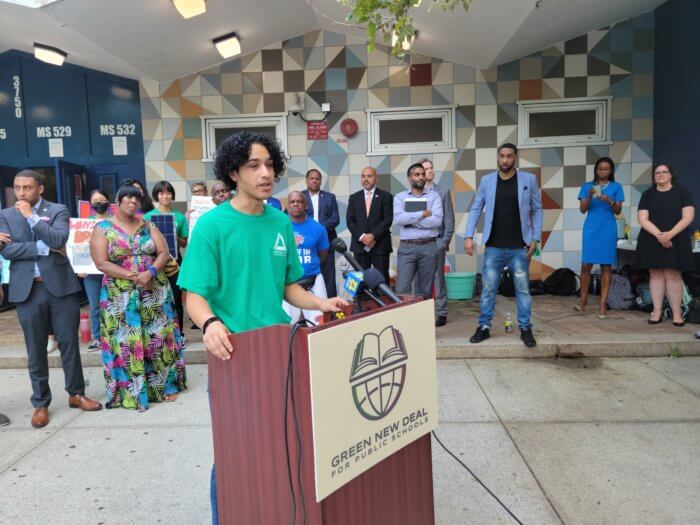
Reach Jason Cohen at jcohen@schnepsmedia.com or (718) 260-4598. For more coverage, follow us on Twitter @bxtimes and Facebook @bxtimes.

